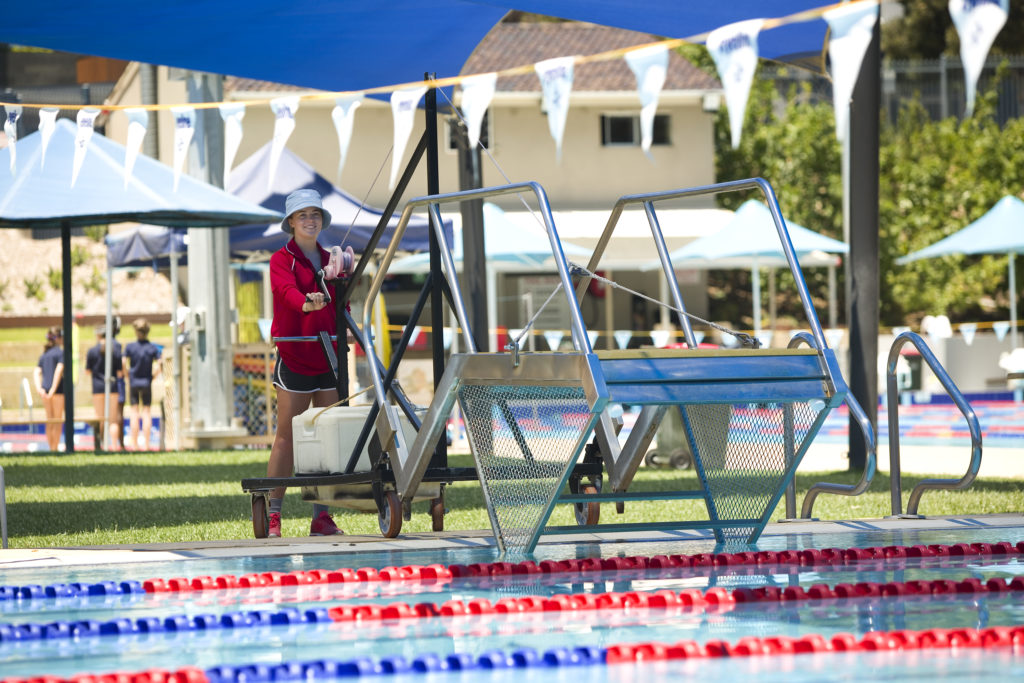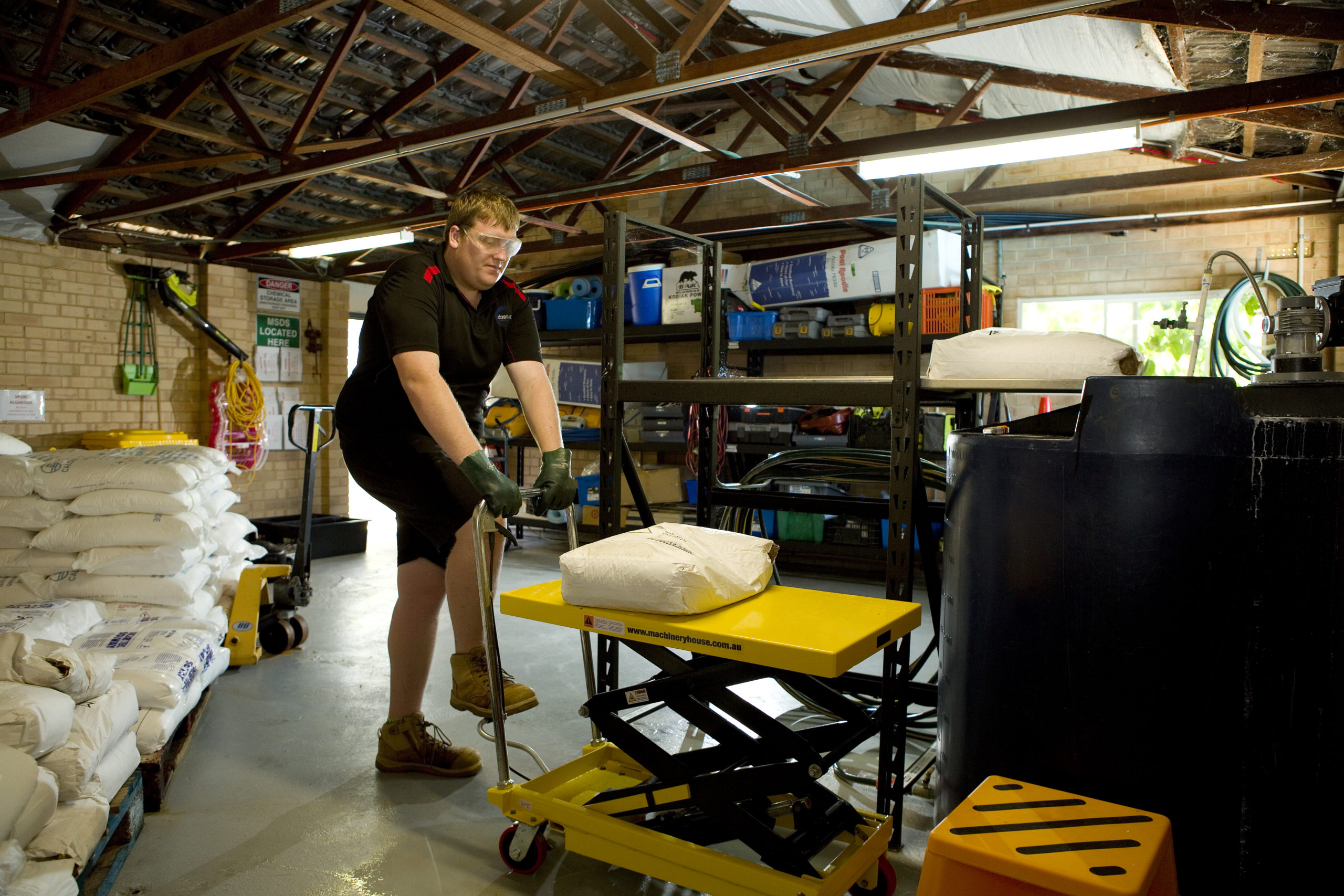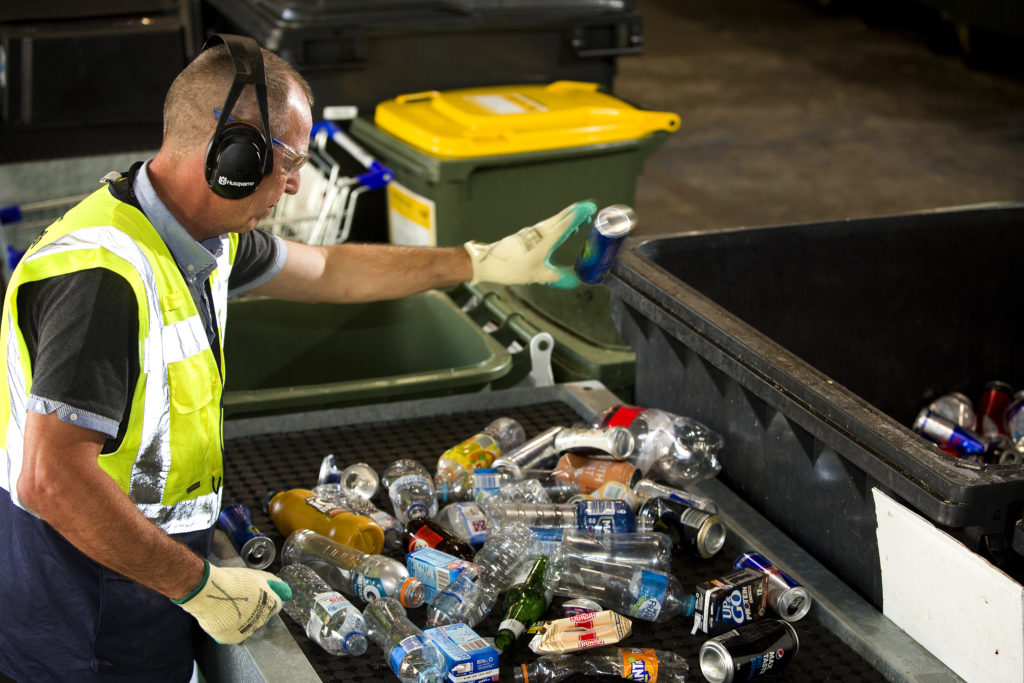Where we’ve been
Over 80 local government representatives attended the forum
held on Monday 28 November at the City of Gosnells.

Aquatic centres have unique risks – along with the usual physical risks like lifting, there are also hig
h-risk processes of managing pool chemicals and moving chlorine, often while the public are utilising the facilities.
Earlier this year, the Town of Claremont engaged the LGIS injury prevention team for a manual task risk assessment for their aquatic centre.
Manual tasks are classed as physical work activities that can be defined as any activity requiring a person to use their musculoskeletal system.

If performed incorrectly, manual tasks can be hazardous. Poor manual task practices remain one of the most common causes of injury in the workplace, and the resulting injuries can place a large burden on workers, local governments, and the industry as a whole.
Moving diving boards – Two staff lift a diving board of approximately 30kg weight, three to four times a day. The first person holds the board at full extension, while standing on the water edge, while the second person lifts the A-frame brace (approximately 20kg) and places in the correct position. An injury had occurred previously performing this task.
LGIS recommendation : Boards could be removed to eliminate the task and risks associated with it.
Over 80 local government representatives attended the forum
held on Monday 28 November at the City of Gosnells.
WALGA and State Council take their responsibility as Trustee of your Scheme very seriously and regularly review the Scheme and the services provided to members.
The 2021 LGIS WorkCare Forum was a great success, packed with speakers across a range of disciplines the WorkCare Forum
Liz Ledger – CEO, Town of Claremont
At the Town of Claremont, the safety of our community and staff is of high importance. We were very happy with the services provided by Dane and the Injury Prevention Team at LGIS. With their help we have been able to manage the centre’s exposure to risk, by implementing all of the recommendations from the team.

Moving pool chemicals – Staff lift chemical bags (up to 20 bags at approximately 25kg each) from a pallet stored approximately 3 to 5m from the dosing bench. Postures involved in the task include bending over and squatting to lift, reaching forward to pull bags forward, mild back extension when lifting bags onto a bench (dependant on worker height), and hands and wrists gripping bags with no handles on bags.
LGIS recommendation : Modify the dosing bench to stainless steel to reduce the friction when dragging bags along in dosing process. Provide a scissor lift flatbed trolley, where bags can be loaded onto the flat bed at the same height as it is stored (reducing ground to waist lifting); then be moved and raised to the dosing table (reducing ground to chest lifting). Ensure the procedure is updated to reflect the new procedure and where possible use photos to demonstrate good technique.
Moving chlorine bottles – This is a high-risk task, shifting an extremely heavy load (around 90kg). The worker approaches gas cylinder (90kg) and unhooks safety chain of storage platform. Worker braces body and adopts a semi-squat position and leans the bottle towards themselves. Pivoting the bottle on its edge, the bottle is shifted to the dosage station. Bottle is secured in the dosage station, and setup completed.
LGIS recommendation : Due to the weight and height of the bottles, there is a requirement for the person completing the tasks to have a certain height and weight, ideally similar to the bottle (if not greater than). This will provide the worker with a matched capacity to the bottle. Where possible in the procedure use photos to demonstrate good technique.
The Town implemented every recommendation LGIS provided and complemented them with manual task training for all staff members. As such, the Town has created a safer environment for its aquatic centre workers, minimising the risk of injury and providing education around safe practice
The LGIS injury prevention team can assist your local government in assessing your manual task risks and providing recommendations for any hazardous tasks. If you have any questions, please contact the team on 9483 8876.

Aquatic centres have unique risks – along with the usual physical risks like lifting, there are also high-risk processes of managing pool chemicals and moving chlorine, often while the public are utilising the facilities.

WA local governments control over 140 landfill facilities and approximately 84 waste transfer stations.
Waste and recycling facilities are considered high risk due to the increased levels of combustibles, the potential for environmental damage, and health and safety concerns.

Conflict in the workplace is almost an inevitable part of working life.
It is common to have disagreement with colleagues due to the fact that you are working with people who have different working preferences, personal values, and working styles.
LGIS is the unifying name for the dedicated suite of risk financing and management services for WA local governments, established by the WA Local Government Association in conjunction with JLT Public Sector (part of the Marsh group of companies). LGIS is managed by JLT Public Sector (ABN 69 009 098 864 AFS Licence 226827).
Risk Matters, via this website, is designed to keep members, their staff and elected members informed on topical risk management and insurance issues and LGIS programs and services.